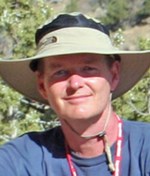
Bruce Hart is a consultant and Adjunct Professor at Western University in Ontario, Canada. He previously held positions with Equinor/Statoil, ConocoPhillips, McGill University, New Mexico Tech, Penn State, and the Geological Survey of Canada. During that time, he worked as a researcher, technical specialist and explorationist for shale plays, tight-gas sandstones, tight-oil plays, fractured carbonates and other unconventional targets on six continents. He has a B.A. (Hons.) in Geography and Geology from McMaster University, a M.Sc. in Océanographie from l’Université du Québec à Rimouski, and a Ph.D. in geology from the University of Western Ontario.
Bruce’s research unapologetically links different geoscience disciplines (geology, geophysics, geochemistry) to each other and to petroleum engineering disciplines (completions, reservoir, production). In recognition of that work, he toured as the AAPG/SEG Distinguished Lecturer in 2009–2010 and 2016–2017. He has authored or coauthored more than 60 peer-reviewed publications (three of which have won Best Paper awards) on shales, seismic attributes, stratigraphy, fractured reservoirs, pore-pressure prediction, sequence stratigraphy, and other topics. He authored a digital textbook on seismic interpretation for AAPG and has given short courses on that topic in Houston, London, Cairo, Kuala Lumpur, Calgary, Vienna, and elsewhere.